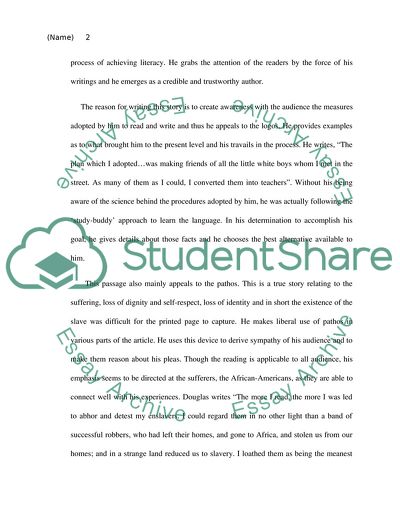Cite this document
(Review of Learning to Read and Write by Frederick Douglass Literature Example | Topics and Well Written Essays - 1500 words, n.d.)
Review of Learning to Read and Write by Frederick Douglass Literature Example | Topics and Well Written Essays - 1500 words. https://studentshare.org/people/1822985-response-with-summery-to-a-literacy-narrative
Review of Learning to Read and Write by Frederick Douglass Literature Example | Topics and Well Written Essays - 1500 words. https://studentshare.org/people/1822985-response-with-summery-to-a-literacy-narrative
(Review of Learning to Read and Write by Frederick Douglass Literature Example | Topics and Well Written Essays - 1500 Words)
Review of Learning to Read and Write by Frederick Douglass Literature Example | Topics and Well Written Essays - 1500 Words. https://studentshare.org/people/1822985-response-with-summery-to-a-literacy-narrative.
Review of Learning to Read and Write by Frederick Douglass Literature Example | Topics and Well Written Essays - 1500 Words. https://studentshare.org/people/1822985-response-with-summery-to-a-literacy-narrative.
“Review of Learning to Read and Write by Frederick Douglass Literature Example | Topics and Well Written Essays - 1500 Words”. https://studentshare.org/people/1822985-response-with-summery-to-a-literacy-narrative.


